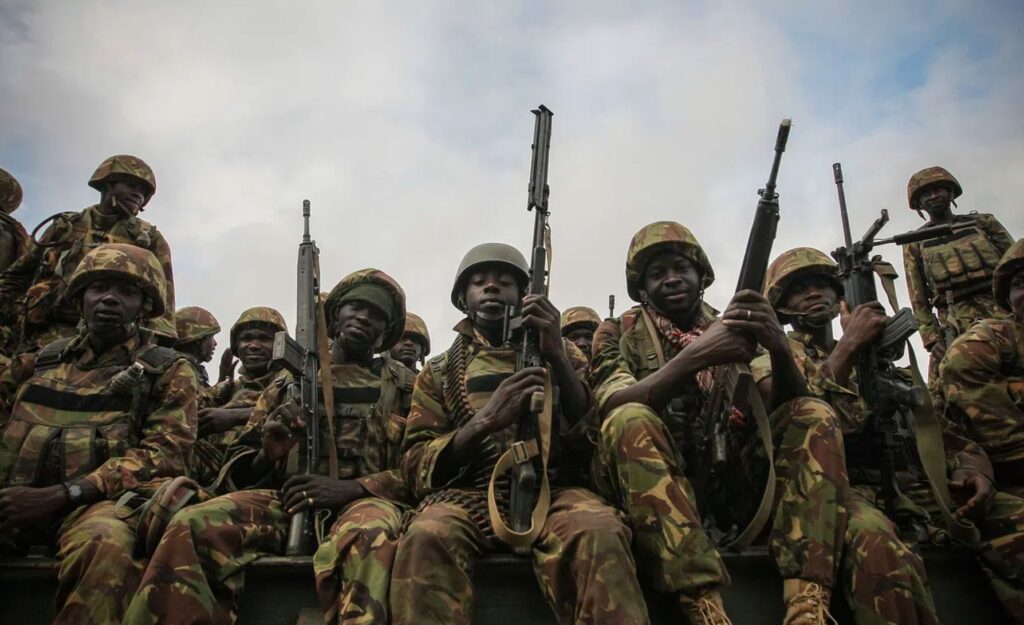In recent weeks, Sudan has witnessed one of the deadliest incidents of violence in its ongoing 18-month war, with reports indicating that at least 124 civilians were killed by the Rapid Support Forces (RSF) in El Gezira State. The RSF, previously notorious as the janjaweed, had been linked to the atrocities committed during the Darfur genocide from 2003 to 2005. Following the surrender of a high-ranking RSF officer last week, there have been accusations of revenge-driven attacks on civilians in El Gezira, exacerbating an already precarious humanitarian situation and displacing thousands more residents. This incident signifies a troubling escalation amidst the ongoing conflict that has embroiled Sudan since April 2023, pitting RSF commander Mohamed Hamdan “Hemedti” Dagalo against army chief Abdel Fattah al-Burhan for control of the country.
The United Nations has reported staggering humanitarian crises emanating from this war, having displaced over 10 million people. Among these, nearly 3 million Sudanese have sought refuge in neighboring countries. The International Organization for Migration has highlighted the vast internal displacement, which is close to 11 million. In regions like Darfur, the RSF’s campaigns have reportedly targeted non-Arab groups, particularly the Black African Masalit community, in what humanitarian experts are categorizing as an ongoing genocide. This cycle of violence has severely hindered aid agencies’ efforts to deliver essential services, as convoys confront lengthy blockades and demands for bribes at the hands of both RSF and Sudanese army checkpoints.
Moreover, reports of destruction have proliferated, with the RSF accused of burning villages belonging to ethnic Zaghawa populations and inducing famine in parts of North Darfur. The situation for civilians remains dire, with both the RSF and Sudan Armed Forces (SAF) conducting attacks on civilian infrastructure. The fear surrounding the fate of El Fasher—a significant city in North Darfur—centers on the possibility of large-scale ethnic cleansing should the RSF gain a stronger foothold. As echoed by prominent figures in peace and security, El Fasher’s fall could unleash unprecedented violence against previously targeted groups, heightening the existing humanitarian catastrophe.
Recent findings from the U.N. Independent International Fact-Finding Mission on Sudan have shed light on severe violations of human rights and humanitarian principles perpetrated by both warring factions. The report outlines numerous international crimes, including attacks on children, assaults against schools and hospitals, and the use of child soldiers by the RSF. The rampant violence has left entire communities devastated, with no segment of the population shielded from the conflict’s consequences, suggesting a comprehensive crisis requiring urgent attention.
Given the situation, the authors suggest a critical need for the establishment of an independent multinational force tasked with reinstating the rule of law and safeguarding civilians in Sudan. Such a force would be responsible for establishing protective zones aimed at facilitating the delivery of humanitarian aid and supporting local self-defense initiatives. The urgency of aid delivery and the protection of agricultural activities cannot be overstated, as many remain in dire need for access to food and other critical supplies. Leaders in the humanitarian community are calling on U.N. Secretary-General António Guterres to leverage his position and advocate for prompt intervention from the U.N. Security Council, highlighting a crucial opportunity to mitigate suffering in Sudan.
There exists a pervasive concern regarding the United Nations’ previous failures to protect vulnerable populations during conflicts. This urgent moment presents an opportunity to rectify past shortcomings and demonstrate a commitment to safeguarding human rights in the face of ongoing crises. As the world watches Sudan spiral deeper into chaos, the implications for regional stability and humanitarian aid cannot be underestimated. Failure to act decisively risks not only the loss of more lives but also the potential for a larger humanitarian disaster that could reverberate across borders. Ultimately, the global community must confront the urgent need for action in Sudan, recognizing that the plight of its people requires immediate and robust international response to avert a larger catastrophe.

